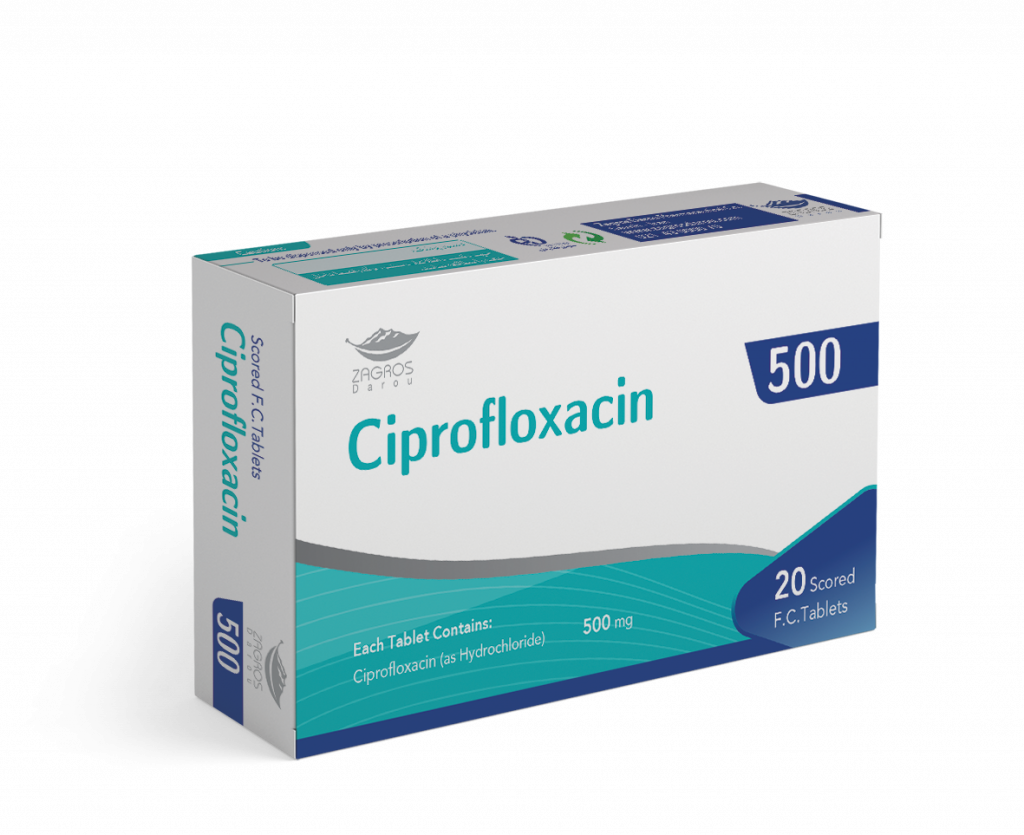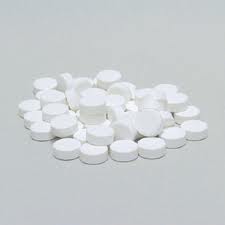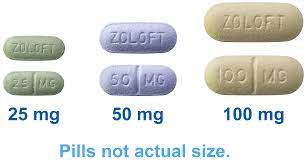Cipro
What is the most important information I should know about ciprofloxacin?

- Take all of the ciprofloxacin that has been prescribed for you even if you begin to feel better. Your symptoms may start to improve before the infection is completely treated.
- Drink plenty of extra fluid every day while taking ciprofloxacin.
- Do not take antacids that contain calcium, magnesium, or aluminum (e.g., Tums or Rolaids); the ulcer medicine sucralfate (Carafate); or vitamin or mineral supplements that contain calcium, iron or zinc for a minimum of 6 hours before or 2 hours after a dose of ciprofloxacin. Taking antacids, sucralfate, or vitamin or mineral supplements too close to a dose of ciprofloxacin can greatly decrease the effects of the antibiotic.
What is ciprofloxacin?
- Ciprofloxacin is an antibiotic in a class of drugs called fluoroquinolones. Ciprofloxacin fights bacteria in the body.
- Ciprofloxacin is used to treat various types of bacterial infections.
- Ciprofloxacin may also be used for purposes other than those listed in this medication guide.
What should I discuss with my healthcare provider before taking ciprofloxacin?
- Before taking ciprofloxacin, tell your doctor if you have· kidney disease; or
·-epilepsy or seizures.
-epilepsy or seizures. - You may not be able to take ciprofloxacin, or you may require a dosage adjustment or special monitoring if you have either of the conditions listed above.
- Ciprofloxacin is in the FDA pregnancy category C. This means that it is not known whether ciprofloxacin will be harmful to an unborn baby. Do not take this medication without first talking to your doctor if you are pregnant or could become pregnant during treatment.
- Ciprofloxacin passes into breast milk and may affect bone development of the nursing baby. Do not take this medication without first talking to your doctor if you are breast-feeding a baby.
- Ciprofloxacin is not approved for use by children younger than 18 years of age (except for use in post-exposure inhalational anthrax). It may interfere with bone development.
How should I take ciprofloxacin?

- Take ciprofloxacin exactly as directed by your doctor. If you do not understand these instructions, ask your pharmacist, nurse, or doctor to explain them to you.
- Take each dose with a full glass of water (8 ounces). Drink several extra glasses of fluid each day to prevent the formation of ciprofloxacin crystals in the urine.
- Shake the oral suspension vigorously for 15 seconds before each use. Do not chew the microcapsules in the suspension, swallow them whole.
- Do not crush, break, or chew the CIPRO XR tablets. Swallow them whole. They are specially formulated to release the medication slowly in the body.
- Ciprofloxacin may be taken with or without food. It is preferable to take ciprofloxacin 2 hours after a meal.
- Do not take ciprofloxacin with dairy products (such as milk or yogurt) or calcium-fortified juice alone. It is not a problem if ciprofloxacin is taken with dietary calcium in a normal meal, but when taken only with dairy products or calcium-fortified juice, the effectiveness of the medication may be decreased.
- Take ciprofloxacin at evenly spaced intervals.
- Do not take antacids that contain calcium, magnesium or aluminum (e.g., Tums or Rolaids); the ulcer medicine sucralfate (Carafate); or vitamin or mineral supplements that contain calcium, iron or zinc for a minimum of 6 hours before or 2 hours after a dose of ciprofloxacin. Taking antacids, sucralfate, or vitamin or mineral supplements too close to a dose of ciprofloxacin can greatly decrease the effects of the antibiotic.
- Take all of the ciprofloxacin that has been prescribed for you even if you begin to feel better. Symptoms may start to improve before the infection is completely treated.
- Store this medication at room temperature away from moisture and heat.
What happens if I miss a dose of ciprofloxacin?
- Take the missed dose as soon as you remember. However, if it is almost time for the next dose, skip the missed dose and take only the next regularly scheduled dose. Do not take a double dose of this medication unless otherwise directed by your doctor.
What happens if I overdose with ciprofloxacin?
- Seek emergency medical attention.
- The most common symptom of a ciprofloxacin overdose is seizures.
What should I avoid while taking ciprofloxacin?
- Avoid prolonged exposure to sunlight. Ciprofloxacin may increase the sensitivity of the skin to sunlight, and a sunburn may result. If sun exposure is unavoidable, wear protective clothing and use a sunscreen. Call your doctor if you experience severe burning, redness, itching, rash, or swelling after exposure to the sun.
- Use caution when driving, operating machinery, or performing other hazardous activities. Ciprofloxacin may cause dizziness. If you experience dizziness, avoid these activities.
- Avoid excessive consumption of products that contain caffeine. Ciprofloxacin may increase the effects of caffeine.
- What are the possible side effects of ciprofloxacin?
- If you experience any of the following serious side effects, stop taking ciprofloxacin and seek emergency medical attention or contact your doctor immediately:· an allergic reaction (difficulty breathing; closing of the throat; swelling of the lips, tongue, or face; or hives);
· seizures;
· confusion or hallucinations;
· liver damage (yellowing of the skin or eyes, nausea, abdominal pain or discomfort, unusual bleeding or bruising, severe fatigue); or
· muscle or joint pain;
· skin rash; or
· chest pain, chest discomfort, shortness of breath, or swelling of the legs or feet. - If you experience any of the following less serious side effects, continue taking ciprofloxacin and talk to your doctor:· nausea, vomiting, diarrhea;
· headache;
· dizziness or lightheadedness;
· drowsiness;
· insomnia;
· ringing in the ears; or
· increased sensitivity of the skin to sunlight. - Side effects other than those listed here may also occur. Talk to your doctor about any side effect that seems unusual or that is especially bothersome.
What other drugs will affect ciprofloxacin?
- Do not take antacids that contain calcium, magnesium or aluminum (e.g., Tums or Rolaids); the ulcer medicine sucralfate (Carafate); or vitamin or mineral supplements that contain calcium, iron or zinc for a minimum of 6 hours before or 2 hours after a dose of ciprofloxacin. Taking antacids, sucralfate, or vitamin or mineral supplements too close to a dose of ciprofloxacin can greatly decrease the effects of the antibiotic.
- Before taking ciprofloxacin, tell your doctor if you are taking any of the following drugs:· didanosine (Videx, ddI);
· theophylline (Theo-Dur, Theolair, Slo-Phyllin, Slo-Bid, Elixophyllin);
· warfarin (Coumadin);
· probenecid (Benemid);
· insulin or an oral diabetes medication such as glipizide (Glucotrol), glyburide (Micronase, Diabeta, Glynase), and others;
· a nonsteroidal anti-inflammatory drug (NSAID) such as ibuprofen (Motrin, Advil, Nuprin, others), naproxen (Aleve, Naprosyn, Anaprox), ketoprofen (Orudis KT, Orudis, Oruvail), and others;
· phenytoin (Dilantin); or
· cyclosporine (Neoral, Sandimmune). - You may not be able to take ciprofloxacin, or you may require a dosage adjustment or special monitoring during treatment if you are taking any of the medicines listed above.
- Drugs other than those listed here may also interact with ciprofloxacin. Talk to your doctor and pharmacist before taking any prescription or over-the-counter medicines, including herbal products.







